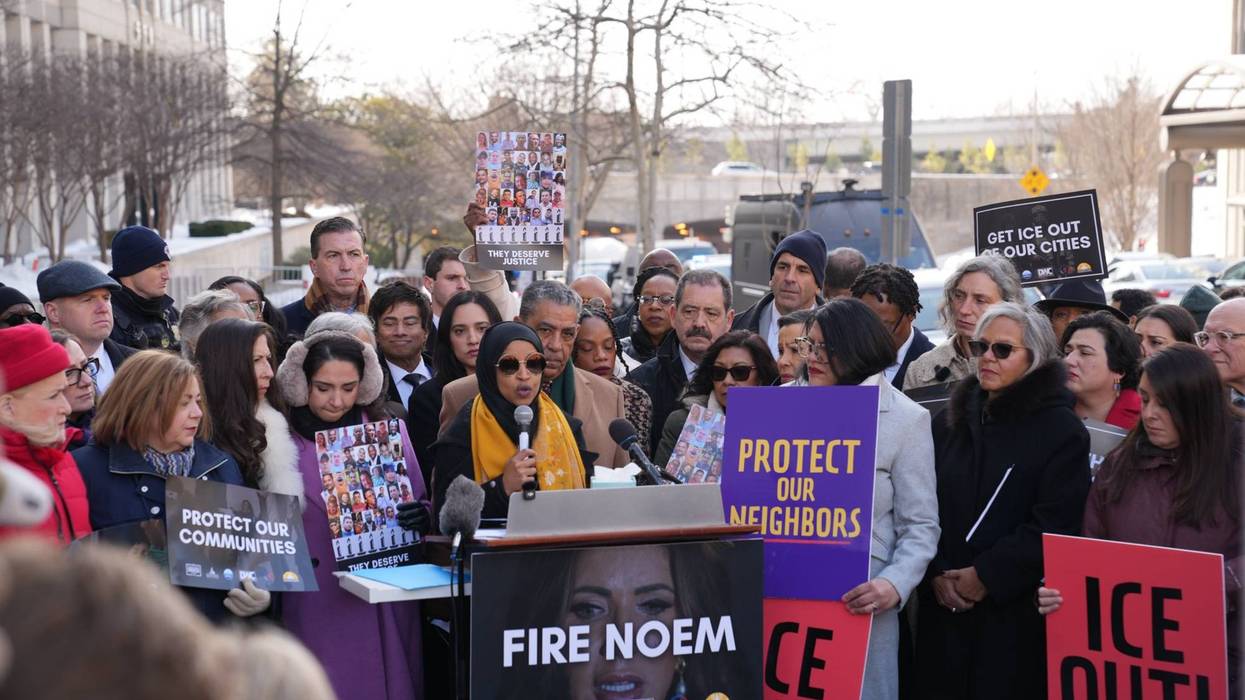The bill, which passed on Tuesday by a vote of 217-214, extends funding for ICE's parent agency, the Department of Homeland Security (DHS), for just two weeks, setting up a battle in the coming weeks on which the party remains split.
While most Democrats voted against Tuesday's measure, 21 joined the bulk of Republicans to drag it just over the line, despite calls from progressive activists and groups, such as MoveOn, which Axios said peppered lawmakers with letters urging them to use every bit of "leverage" they can to force drastic changes at the agency.
House Appropriations Committee Ranking Member Rosa DeLauro (D-Conn.), who voted for the bill, acknowledged that it was "a leverage tool that people are giving up," but said funding for the rest of the government took precedence.
The real fight is expected to take place over the next 10 days, with DHS funding set to run out on February 14.
ICE will be funded regardless of whether a new round of DHS funding passes, since Republicans already passed $170 billion in DHS funding in last year's One Big Beautiful Bill Act.
Democrats in both the House and Senate have laid out lists of reforms they say Republicans must acquiesce to if they want any additional funding for ICE, including requirements that agents nationwide wear body cameras, get judicial warrants for arrests, and adhere to a code of conduct similar to those for state and local law enforcement.
Rep. Pramila Jayapal (D-Wash.), the chair emerita of the Congressional Progressive Caucus who voted against Tuesday's bill reiterated that in order to pass longterm DHS funding, "there must be due process, a requirement for judicial warrants and bond hearings; every agent must not only have a bodycam but also be required to use it, take off their masks, and, in cases of misconduct, undergo immediate, independent investigations."
Some critics have pointed out that ICE agents already routinely violate court orders and constitutional requirements, raising questions about whether new laws would even be enforceable.
A memo issued last week, telling agents they do not need to obtain judicial warrants to enter homes, has been described as a blatant violation of the Fourth Amendment. Despite this, House Speaker Mike Johnson (R-La.) said on Tuesday that Republicans will not even consider negotiating the warrant requirement, calling it "unworkable."
"We cannot trust this DHS, which has already received an unprecedented funding spike for ICE, to operate within the bounds of our Constitution or our laws," Jayapal said. "And for that reason, we cannot continue to fund them without significant and enforceable guardrails."
According to recent polls, the vast majority of Democratic voters want to go beyond reforms and push to abolish ICE outright. In the wake of ICE's reign of terror in Minneapolis, it's a position that nearly half the country now holds, with more people saying they want the agency to be done away with than saying they want it preserved.
"The American people are begging us to stop sending their tax dollars to execute people in the streets, abduct 5-year-olds, and separate families," said Rep. Rashida Tlaib (D-Mich.), who gathered with other progressive lawmakers in the cold outside DHS headquarters on Tuesday. "ICE was built on violence and is terrorizing neighborhoods. It will not change... No one should vote to send another cent to DHS."
Rep. Ilhan Omar (D-Minn.), who comes from the Minnesota Somali community targeted by Trump's operation there, agreed: "This rogue agency should not receive a single penny. It should be abolished and prosecuted."




